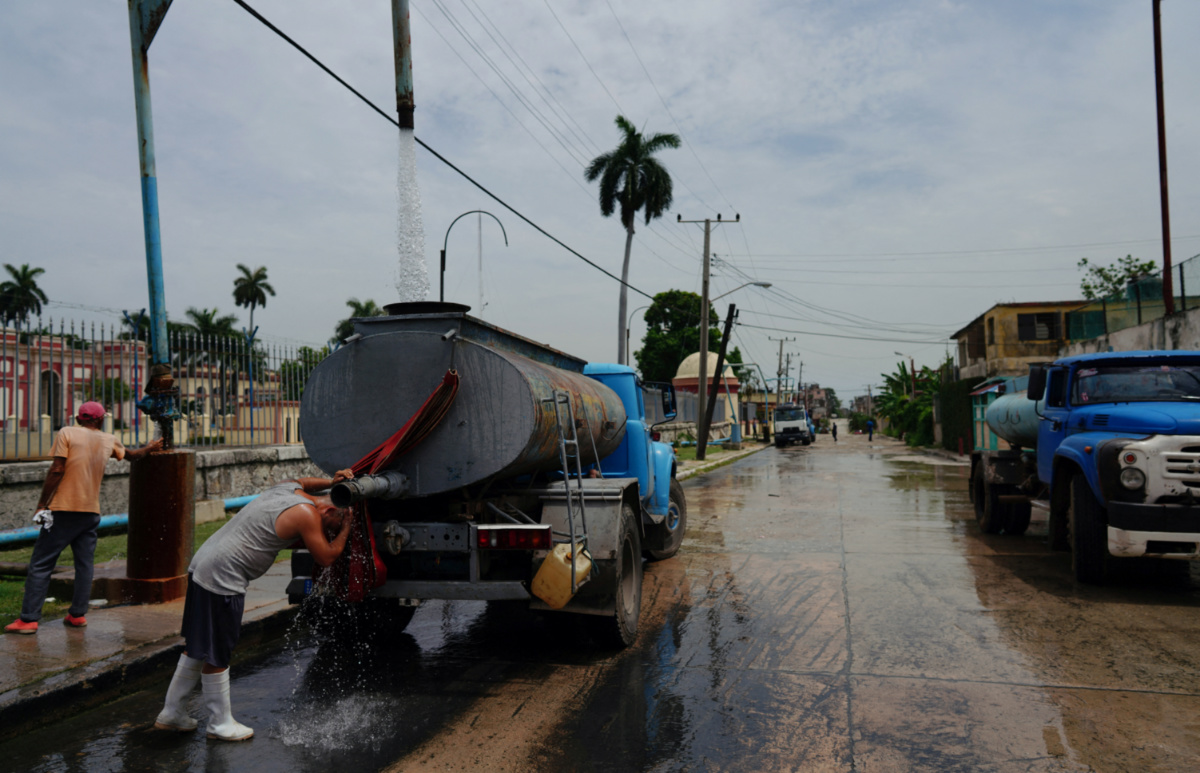Havana, Cuba
Reuters
More than 100,000 Havana residents are without water as the heat of the Caribbean summer sets in, raising tensions on the streets of Cuba’s capital as the crisis-racked government scrambles to find a solution.
The shortages – linked to the island’s aging, decrepit infrastructure – are affecting between 100,000 and 200,000 citizens of Havana, or as much as 10 per cent of the city’s population, state-run media reported late last week.

A driver refreshes himself as he fills up the tank of a water truck in Havana, Cuba, on 3rd July, 2023. PICTURE: Reuters/Alexandre Meneghini
The water shortages are caused by a variety of factors, according to local officials, including faulty motorised pump stations, leaky pipes and climate change-induced drought.
It is the latest in a long list of troubles complicating daily life, said Annia Batista, 37, a resident of old Havana, as she scrubbed dishes beneath a plastic spigot that only dribbled.
“It’s been days since we have had water,” said Batista. “The situation is very bad.”
The communist-run country is going through one of its worst economic crises in decades, battered by tough US sanctions, a pandemic hangover, and floundering tourism. Food, medicine and fuel are in short supply, and soaring inflation has put what little is available out of reach for many.
Water shortages and disruptions are already common in outlying provinces, where similarly antiquated infrastructure and drought force many to depend on cistern trucks or local rivers, streams and shallow wells.
Havana officials visited several key water infrastructure sites in the capital over the weekend, according to a report in online news outlet CubaDebate, but they warned there would be no quick fixes.
“The installation of 23 new [motorized water pumps] will help resolve the problem in the city and allow us to have reserves, but stability will come only once they are installed,” said Luis Antonio Torres, a top provincial communist party official.
“It is not an immediate solution,” Torres said, noting the first batch will not arrive until the end of July.
In the last couple of years, frequent power outages have disrupted water supply throughout the country, but Cuba’s government has said its electric grid is better prepared this summer.
However, Havana’s local government said last week that demand was running 25 per cent above its budgeted forecast and asked residents to conserve energy when possible.
Blackouts are a thorny subject in Cuba, and have, in part, contributed to anger that has led to anti-government protests across the island, including demonstrations in July, 2021, believed to be the largest since former leader Fidel Castro’s 1959 revolution.






